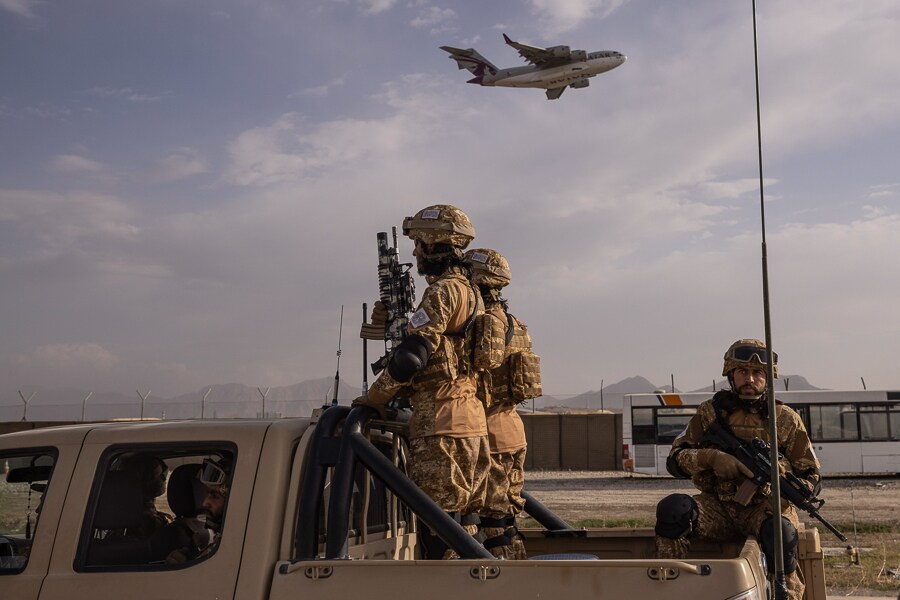
From Afghanistan to the World Cup, tiny, wealthy Qatar steps up
The gas-rich country, which has long used its tremendous wealth to punch above its weight, is having a moment in the world spotlight
 A Qatari flight takes off from the Kabul airport on Friday, Sept. 3, 2021. Since the Taliban takeover, Qatar has sent tons of aid to Kabul and worked to re-open the airport; Image: Victor J. Blue/The New York Times
A Qatari flight takes off from the Kabul airport on Friday, Sept. 3, 2021. Since the Taliban takeover, Qatar has sent tons of aid to Kabul and worked to re-open the airport; Image: Victor J. Blue/The New York Times
DOHA, Qatar — As chaos took over the United States’ last-minute efforts to evacuate more than 120,000 of its citizens and partners from Afghanistan last month, a tiny, wealthy country that many Americans would struggle to find on a map suddenly found itself uniquely placed to help out.
Qatar, a sandy, sun-baked peninsula in the Persian Gulf, received about 60,000 Americans and Afghans, more than any other country. And with its ties to both the United States — it hosts the largest U.S. military base in the Middle East — and the Taliban, it is well placed to play a strong role as an intermediary between the new Taliban-run Afghanistan and the West.
The gas-rich country, which has long used its tremendous wealth to punch above its weight, is having a moment in the world spotlight.
Even as it delivers tons of food and medical aid to Afghanistan and hosts the U.S. secretaries of defense and state, who flew to Qatar this week, it has made attention-grabbing news in the world of soccer, where it recently signed one of the sport’s greatest players, Lionel Messi, to the Paris Saint-Germain team it owns. The country is also set to host the soccer World Cup next year.
“Qatar has always wanted to be a global player, whether that is hosting huge sports events or signing major players, or presenting itself as a regional linchpin for global politics and diplomacy,” said Michael Stephens, a senior fellow at the Foreign Policy Research Institute and an expert on Gulf politics. “They have not always got this balance right, but at the moment they seem to have taken the right initiatives at the right time.”
©2019 New York Times News Service







